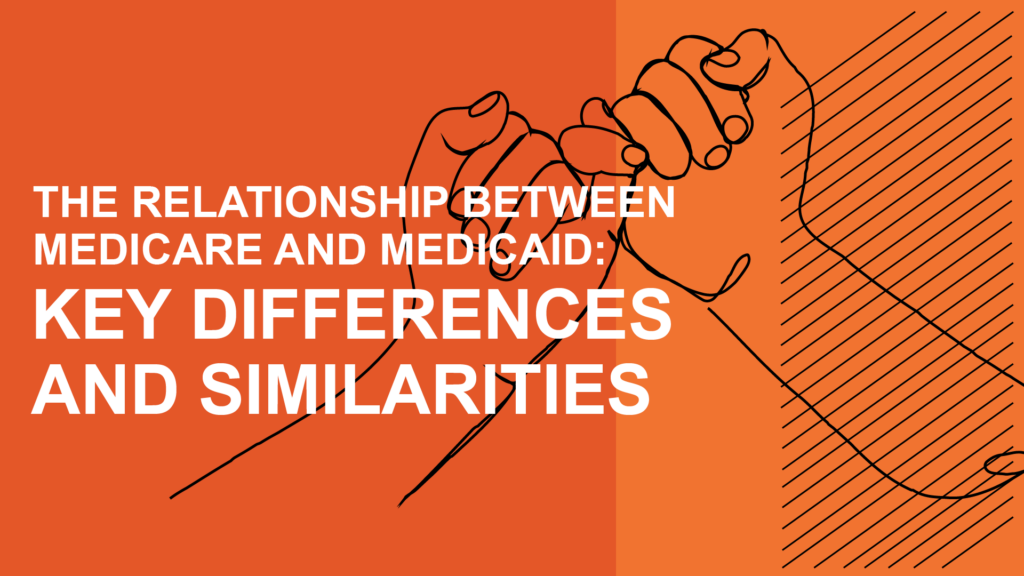Medicare and Medicaid, although they are both health insurance programs, have several key differences and similarities that beneficiaries should know. Read on for the highlights of these federal and state programs.
Program Administration and Funding Sources
Medicare and Medicaid were signed into law in 1965 with Title XIX of the Social Security Act. Both have federal funding, but only one of these programs is administered by the federal government. Medicare is administered by the Centers for Medicare & Medicaid Services (CMS). However, eligibility and enrollment are handled by the Social Security Administration. Medicaid is funded both by the federal government and state governments, so individual states run their Medicaid programs.
Eligibility for Medicare vs. Medicaid
Medicare beneficiaries can qualify for coverage in one of two ways:
- Age 65 years old or older
- Under age 65 with certain chronic disabilities who meet specific requirements, such as 24 months of receiving disability benefits
Eligibility for Medicaid programs can vary by state. Typically, Medicaid provides coverage for the following:
- Children of low-income families
- Children in foster care
- Pregnant women with low income
- Parents or caregivers with low income
- People with disabilities
- Seniors with low income
Dual Eligibility Benefits
You can be eligible for both Medicare and Medicaid and be enrolled in both programs at the same time.
If you are a Medicare beneficiary with a low income and limited resources, you may qualify for Medicaid. Look to your state resources for program eligibility, which will explain the income and resource limits for each category. Once you join a program, you will have even lower costs for your health coverage and, often, gain expanded benefits.
If you are already enrolled in Medicaid when you become eligible for Medicare, you can sign up for a plan type that caters specifically to dual-eligible people: a Dual-eligible Special Needs Plan. This is a Medicare Advantage plan with a network of healthcare providers who accept both Medicare and Medicaid and provides coverage specific to the needs of your peer group.
Medicare and Medicaid Coverage
Medicare and Medicare provide health insurance coverage, but Medicaid offers a few key benefits that do not come with the standard Medicare package. Medicaid programs have mandatory coverage for a few areas; the rest is up to individual states. Typically, Medicaid covers prescription drugs, nursing home care, home health care or residential senior care services, dental care, vision care, hearing disorder services, and more. These are services that Medicare beneficiaries purchase through supplemental insurance plans.
Enroll in Medicare and Medicaid
Many Americans are eligible for both Medicare and Medicaid coverage. To find out more about which programs you qualify for, visit your state Medicaid website or enlist the assistance of a licensed insurance agent in your region.


